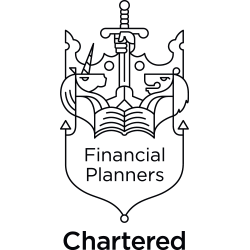Why the Bank of England’s base rate rises have sent mortgage rates soaring
The Bank of England (BoE) recently raised its base rate to 3%. This marked the eighth consecutive rise since December 2021 and its highest level since the 2008 global financial crisis.
The base rate is the level of interest the BoE charges commercial banks for loans. When the base rate changes, banks alter their interest rates accordingly.
If the base rate falls, interest rates go down, borrowing becomes cheaper, and spending is likely to increase. When the base rate rises, borrowing – including mortgage borrowing – becomes more expensive.
The base rate is currently rising, with further increases expected. The next Monetary Policy Committee (MPC) meetings are due on 3 November and 15 December.
So, what does a rising base rate mean for your mortgage? Keep reading to find out.
Soaring inflation and the recent mini-Budget have forced the base rate to rise
The cost of living crisis has been dominating UK headlines over the last 12 months.
In July 2021, the Consumer Price Index (CPI) topped the BoE’s 2% target for the second time in three months. Since then, the trend has been sharply upward. It currently stands at 10.1%.
Multiple factors are to blame, including:
- Post-Brexit labour shortages across many sectors
- Global supply chain crises in the tech industry
- China’s slow economic growth and zero-Covid stance.
More recently, Russia’s invasion of Ukraine has also had a huge influence.
But what does rising inflation have to do with your mortgage?
The BoE uses its base rate to keep inflation in check
The BoE wants to keep inflation under control. High inflation hits the least well off the hardest and one way to bring inflation down – and to ensure it remains stable – is to increase interest rates.
Higher rates are intended to slow borrowing and spending and encourage consumers to save instead. Reduced spending means a reduction in demand for goods and services and prices fall.
With prices soaring and millions of Brits struggling to heat their houses, BoE intervention is crucial.
The base rate dropped to an historic low of just 0.1% at the outbreak of the coronavirus pandemic, having been low since the 2008 financial crisis. This has, though, given the BoE plenty of scope for raising the rate.
As of early November, it now stands at 3% and could rise further at the next MPC meeting.
With inflation at a 40-year of 10.1%, it remains to be seen what effect future interest rate rises will have.
What does all this mean for your mortgage and will it get more expensive?
In short, the simple answer is probably “yes”.
Rising rates are bad news for borrowers. If you have a mortgage, higher interest rates will likely mean higher repayments.
The news is particularly bad if you are on a tracker mortgage. With this type of mortgage, the amount you pay isn’t fixed but can rise and fall in line with the markets.
It is estimated that around 800,000 people will see their mortgage rate increase as the base rate rises. If you are on a standard variable rate (SVR), these will shortly increase too.
Most mortgages are sold on a fixed-term rate. This means that you are sheltered from rising interest rates for now but you could see issues when your current fixed term expires.
You will likely find that you have fewer options and those that remain are more expensive.
This is especially true following the economic chaos caused by the mini-Budget of Liz Truss and Kwasi Kwarteng.
While Kwarteng’s successor immediately rolled back on many aspects of the controversial Growth Plan – with further announcements due 17 November – much of the damage had already been done.
Stock market instability, the loss of investor confidence, and a plummeting pound caused mortgage lenders to hastily withdraw deals and products.
Moneyfacts reported that on Friday 23 September (the day of the mini-Budget announcement) available residential mortgage products totalled 3,961. By Wednesday 28 September, the figure stood at just 2,661. It dropped further the following day, to 2,340.
Those that remain, and those that trickle back, will be repriced, with the average two-year fixed mortgage rate 1% higher on Monday 3 October than on the day of the mini-Budget.
This will have a huge impact on anyone looking for a first-time mortgage this year, or whose SVR deal is about to end.
Get in touch
If you are worried about the effect of the mini-Budget and base rate rises on your mortgage, speaking to the experts can offer peace of mind so be sure to speak to us now.
Please email us at info@logicfinancialservices.co.uk or check with your adviser.
Please note
The value of your investment can go down as well as up and you may not get back the full amount you invested. Past performance is not a reliable indicator of future performance. Levels, bases of and reliefs from taxation may be subject to change and their value depends on the individual circumstances of the investor.
Your home may be repossessed if you do not keep up repayments on a mortgage or other loans secured on it. Think carefully before securing other debts against your home.

